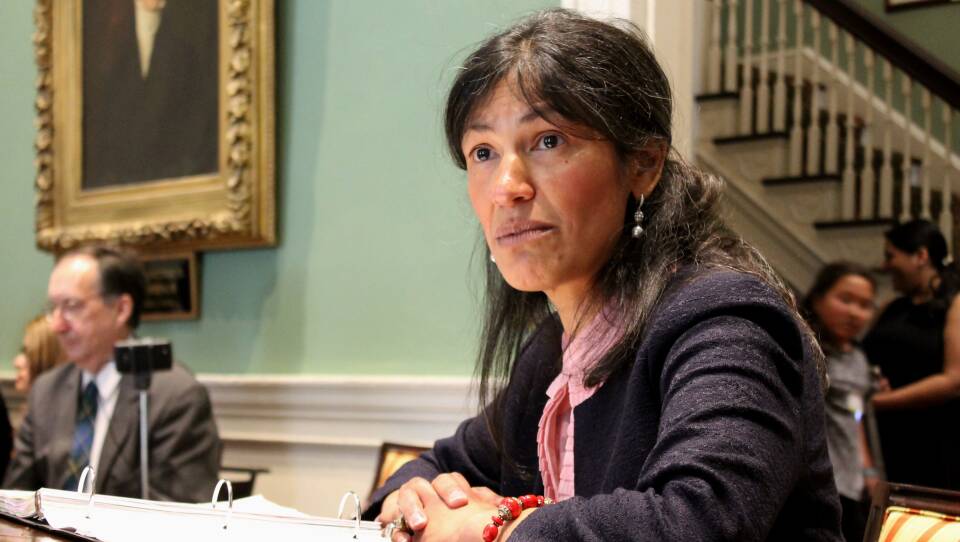Last week the highest court in Massachusetts, the Supreme Judicial Court, issued a stunning rebuke to prosecutors in Hampden County for failing to turn over evidence in a Holyoke murder case. GBH News Legal Analyst Daniel Medwed joined Mornng Edition host Joe Mathieu to discuss the case and its future implications
Joe Mathieu: So, Daniel, let’s start with the basics. What is this case all about?
Daniel Medwed: It all started with an argument outside a Holyoke apartment building in July 2014. Jorge Rodriguez-Nieves apparently believed that a man was spreading rumors that he was cheating on his girlfriend with another woman. The argument escalated to the point where Rodriguez-Nieves stabbed the man once in the neck, which produced massive bleeding. At the murder trial, one of the witnesses — the victim’s stepdaughter — testified that the victim “looked at me and he said: Take care of the children.” She also asserted that the defendant then walked over to a stop sign and laughed. The defense had no idea that she was going to testify this way and, in fact, had received her original statements to the police that included nothing along these lines. Prosecutors, however, had learned about a week before trial that the stepdaughter intended to testify in that manner. It was very powerful, damning testimony against the defendant, who was convicted of first-degree murder. Later on appeal the defense claimed that it should have been given advance notice that the stepdaughter had shifted her account of what happened.
WATCH: What are the grounds for that defense argument?
Mathieu: We’re talking with GBH legal analyst Daniel Medwed about a recent SJC decision that reversed a Holyoke murder case because of errors by the prosecution. So, did the SJC ultimately agree with the defense argument?
Medwed: Yes, the Court agreed that the failure to disclose the stepdaughter’s change in her account before trial violated the Brady rule, and prejudiced the defense case. As a consequence, the SJC ordered a new trial. That’s important — the remedy here is not freedom for Rodriguez-Nieves. Rather, he simply gets a new trial with the benefit of the information about the change in this key witness’s statements.
Mathieu: What does this case mean going forward? Did it break new legal ground?
Medwed: Well, it doesn’t necessarily break new legal ground, but here’s why I think it’s important. First, it was a unanimous decision, which suggests the Court as a whole really found this error appalling and that it might remain vigilant in chastising prosecutors for misconduct. Second, the opinion was written by one of the newcomers appointed by Governor Baker to the Court, Justice Dalila Wendlandt. Her background is in civil practice — she litigated intellectual property cases at Ropes & Gray — so I wasn’t really sure where she stood on criminal cases, and this is heartening to me. Finally, Hampden County — which includes Springfield — has had more than its fair share of criminal justice controversies in recent years. The Springfield Police Department, in fact, was the only one in the country that former President Donald Trump’s Department of Justice saw fit to formally condemn for its improper practices. This case just adds to the pressure, much needed pressure, on Hampden County to improve how it enforces and prosecutes the law.





